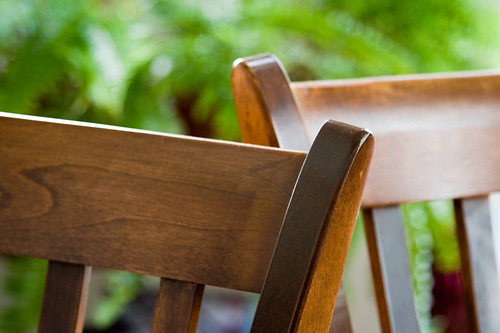To kick off our Winter 2011 semester we attended a conference covering many different education topics. For one session I chose to attend a presentation about physical education assessment, mostly since I know nothing about physical education and thought that perhaps I could get some ideas that could translate well over into math and the sciences.
To kick off this particular presentation, the presenters posed a question to us; Should effort be included in assessment? I immediately thought to myself, of course it should. I think mostly everyone else in the room had the same train of thought. Then they asked us to consider the following scenario:

You’re looking for a new wooden chair. You head to the local wooden chair shop and, after some time, you narrow down your search to two different chairs. You decide to sit in them to see how comfortable they are. The first one feels good, you can see yourself sitting comfortably in it everyday. You sit in the second one and it falls apart. You find out that the first one was built in less than a day by a “natural” builder who has incredible talent, he/she usually builds a few a day without any problem. The second chair, which fell apart, was built by someone who spent months of hard labour and put a lot of love and care into their work. Regardless of this background knowledge, which chair would you buy?
This scenario bothered me ever since I heard it. To be completely honest, I had not considered this approach until hearing the scenario.
Is the purpose of education to create the best wooden chair? How can we encourage students to learn to build better chairs if we don’t find out what areas need improvement in the building process? Did the builder struggle with gluing, cutting or what? Isn’t knowing about the process involved much more valuable?
How do we get out of the mindset of caring solely about the final product?